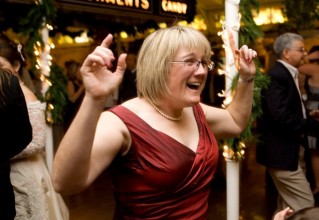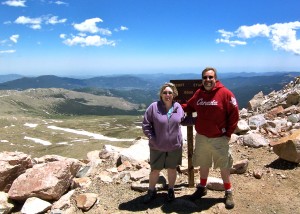 I can always tell when I need to write something down because is gnaws at me until I put the words down. It doesn’t happen as often as it used to, but every once and a while it still does – and this one won’t let me go. And it’s going to open a door that I usually don’t leave wide open. Bear with me; this might take a while to come together, however.
I can always tell when I need to write something down because is gnaws at me until I put the words down. It doesn’t happen as often as it used to, but every once and a while it still does – and this one won’t let me go. And it’s going to open a door that I usually don’t leave wide open. Bear with me; this might take a while to come together, however.
I read a number of blogs on subjects as wide ranging as comics, history, skepticism, higher education, astronomy, foreign policy, baseball, sports uniforms, and movies, just to name a few. On of these blogs is written by an Australian philosopher named Russell Blackford. He writes about a variety of things, but is known as an atheist. He participated in an IQ2 debate about atheism titled “Atheists are Wrong.” These live debates are scored through audience voting before and after, and bring together participants (usually 2 or 3 per side) to argue for and against the proposition. Russell participated on the opposition and made some comments about the debate at the time, but I wasn’t really drawn in.
A couple of weeks ago he posted a sizable rebuttal to the written transcript of one of the participants for the other side, namely Tracey Rowland. As is often the case, Rowland’s argument didn’t really contain any data on why atheists are wrong, but it did contain some very disturbing (to me, at least) comments about the second-class status that she believes atheists live in.
Her argument is nicely summed up in her final sentence, “I believe that the atheists are wrong because human life cannot be this meaningless.” Firstly, that’s not a rebuttal of the premise of the debate – maybe life is that meaningless, but that doesn’t support the argument that atheists are wrong. Life could be meaningless and god could exist – both could be true. But aside from that issue, Rowland states common, but deeply offensive arguments against the equality of atheists that have really pissed me off.
She sees the dangerous break as happening in the eighteenth century when she says, “the intellectual fashion was to separate faith and reason.” Once reason was free to go its way without religion, it was possible to see humans as just “a bundle of drives and urges.” She sees believers (who she call Christians, since she doesn’t seem to see believers who don’t share her faith) as in an epic quest to find true real love and goodness.
But the part that really got to me was this –
The…atheists have not only gone to war against God in their fight for limitless freedom, but they have evacuated the human person of any self who might enjoy that freedom. Sexual relations hollowed out into their materialist shell become mutual manipulation; political relations hollowed out into their materialist shell become brutal power; and market relations hollowed out into their material shell give us consumerism and status anxiety.
Wow, so because I don’t believe in god I have a type of freedom (albeit with an empty self), but I have no true feelings that can be expressed, no true desire to see government do the best for the greatest number of people, and no true sense that capitalism could be more than crass consumerism. Atheists bring out the worst in everything because a meaningful world can only come from god. (I’m betting that many of the fat cats that drove us into this recession through questionable financial dealings believe in god, however.)
Now Rowland does keep going this way, arguing that rationalists believe the state is our savior, that secularist states have killed more people over the years, and that “the cultural logic of atheism is the advance of a new ruling class, comprised of entrepreneurs and bio-technologists, who will try to perfect the human product by technological means.” I could get an argument going against all those things, but that’s not the part that really bothers me (since I’m not really worried about those things).
I am a physical being, programmed by DNA. Even if I believed in god, I couldn’t change that, and neither can anyone else (yet, I know biology is working on it). As I see Rowland’s argument, my lack of belief in god removes any purpose or significance in my life other than passing along my DNA (and I’ve failed in that one). So really, I should just check out right now, but no atheist I know or read would suggest that I should. I suppose that people who know me would prefer that I don’t just check out (I hope). But I guess those friends and family are just “mutual manipulation,” so it really doesn’t matter.
My trouble with Rowland’s argument is that it appears to make atheists (and non-Christians?) second-class citizens. If my life has no “meaning,” then why shouldn’t it be forfeit? I’m just taking up space, I suppose. And this is where I wonder if Rowland actually knows any atheists. And by that I mean has any as friends. I have friends that are Catholics, Protestants, Jews, Wiccans, Buddhists and agnostics. I may disagree with them about the existence of god, but I don’t go around calling them delusional, and denigrating their feelings about the world. I see them as caring, involved, members of society who do many things to bring about what they see as a better world, just as the atheists I know do. My husband notes that I am fighting against dogma, but I’m really more concerned about how Rowland actually would treat me or any atheist in person. Would she devalue my marriage because of my lack of faith, or deny it completely? By being an atheist do I become meaningless?
One of the arguments around the atheist community is about being out. Should an atheist make that known to the people in their life? Does that help make atheism less ‘scary’ or does it just make more targets? The LGTB community found that coming out made many folks realize that they knew gay people, and many think that knowing an atheist – a run of the mill, person who lives next door atheist rather than an activist – would be good for our group profile.
So here I am – I live next door to you. I pay my taxes and vote in elections. I donate to Toys for Tots at Christmas, and to the local food back. I pick up random pieces of trash in the parking lot, and I occasionally drive too fast. I love theater and opera as well as rock and jazz. I wonder at both the tiny minutia of the working of an atom, and at the grand view of Rockies outside my window. I feel love, sorrow, joy, pain, jealousy, anger, humor, and irony just like everyone else. I make the meaning in my life every day by making the most of the days that I have. I know they are finite – and that makes each one mean more, not less.










